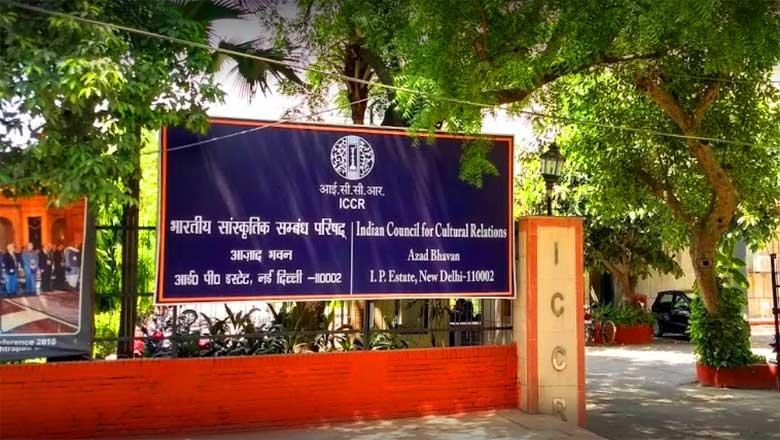The Indian Council for Cultural Relations (ICCR) is celebrating its 70th Foundation Day on 9 April. However, the grand celebrations planned earlier are now postponed by a year in the wake of Covid-19.
“ICCR is all about cultivating an enlightened understanding of Indian culture and when the entire Global community is facing an unprecedented challenge, feeling lonely and disconnected, the message of Indian philosophy i.e. Vasudhaiva Kutumbakam or the world is a family has become more relevant than any time in the past. Even in this lockdown situation, ICCR is conducting e-tutorials in Yoga, classical dances and even Hindi and Sanskrit. We are working with a ‘show must go on spirit’. A Global Art Competition on the theme of facing the challenge of Covid-19 unitedly has already been announced and through many such programmes we will rise to the occasion”, ICCR President Dr Vinay Sahasrabuddhe said in his Message on this occasion.
ICCR was founded in 1950 by India's first Education Minister, Maulana Abul Kalam Azad, with the objective of fostering and strengthening cultural relations and mutual understanding between India and the world, and to promote cultural exchanges with other countries and people.
During the last seven decades, the functioning of ICCR as an institution has acquired newer dimensions towards promotion of India’s cultural heritage and has emerged as the ‘soft power’ arm of the Ministry of External Affairs through an array of well-designed and targeted programmes.
A wide-range of ICCR’s cultural, academic and intellectual exchanges and promotion of India’s culture abroad encompass various outreach activities through its 38 cultural centres abroad and 19 Regional Offices within India, including Indian art, history, oral traditions, dance, music, yoga, languages, food, festivals and contemporary issues.
Major programmes under the ambit of ICCR being conducted for the larger objective of creating an enlightened understanding of Indian culture amongst the global community, could be broadly categorised as follows:
- Promotion of Indian art forms by sponsoring visits of Indian cultural delegations abroad and holding Festivals of India abroad;
- Hosting foreign cultural troupes and international Cultural Festivals in India;
- Exhibitions of art and Craft in India and abroad;
- Gifting Busts and Statues of India’s iconic figures abroad;
- Executing scholarship schemes for international students;
- Fellowship programmes, establishing Indian Chairs in foreign institutions/universities;
- Inviting distinguished and academic visitors from abroad to give them a glimpse of India;
- Awards programme (alumni, Indology and Sanskrit);
- Promotion of understanding of Indian languages, especially Hindi and Sanskrit and also Indian literature, abroad;
- Promotion of Yoga and celebration of International Day of Yoga abroad;
- Conducting Annual Lecture Series ( Deen Dayal Upadhaya Memorial Oration to mark the World Culture Day on May 21)
Over the years, through this cross fertilization of ideas, ideals and cultures, ICCR has taken our millennia old civilizational and cultural values to the world and has fostered the goal of Vasudhaiva Kutumbakam- the world as a family. The strong cadre of ICCR alumni, who are infused with the same spirit of enlightened globalization has been instrumental in spreading ICCR’s message. The council now annually offers about 4,000 scholarships for Undergraduate, Postgraduate, M. Phil./Ph.D and Post-Doctoral Fellowships in various Indian Universities/Institutes.
The quest for knowledge has always been fundamental to Indian Culture and Civilisation. Since time immemorial, India has attracted knowledge-seekers and inquisitive minds from all over the world. India continues to be a centre for learning and promotes academic exchanges through Conferences, seminars, Chairs of Indian Studies and the activities of Alumni of Indian institutions.
Seven decades of our existence is a matter of pride and joy. Due to the ongoing COVID19 pandemic that we face, ICCR will mark this occasion of its Foundation Day on 9th April by undertaking various online activities in India and abroad. Essay Competitions for international students and Indian diaspora will be held in India and all over the world. A blog space of ICCR students studying in India shall be launched and our Indian Missions abroad shall celebrate the day in their respective countries of accreditation in a befitting manner.
- 7181 reads










Add new comment